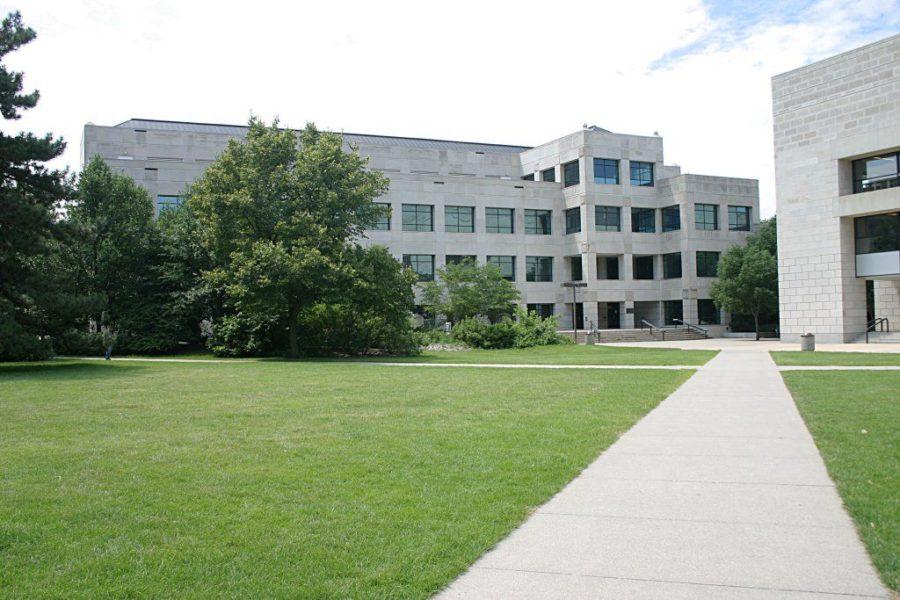Digital Accessibility Lab to open in Durham Center
Durham Center is the location of the newly finished Digital Accessibility Lab. This lab will provide students with disabilities the technological resources they need for their classwork.
November 5, 2019
The Digital Accessibility Lab is being opened for students with disabilities on campus.
From 3 to 4:30 p.m. Wednesday in Durham Center room 206 on campus, speakers are scheduled from 3 to 3:45 p.m., followed by tours of the lab in Durham Center room 108.
Students, faculty and staff are encouraged to attend and refreshments will be served.
According to a press release, the Digital Accessibility Lab will allow students with disabilities to work together using assistive technology that includes speech-to-text software, text-to-speech software, gaming hardware and software, screen magnifiers, virtual reality headsets and more.
“Many Iowa State students experience daily barriers to their educational goals, and creating barrier-free access to hardware and software through initiatives like the Digital Accessibility Lab offers students greater opportunities to increase their course engagement and succeed during their time at Iowa State and beyond,” said Tonya Tienter, communications specialist for Information Technology Services, in a press release.
The Computation Advisory Committee (CAC) recently approved a $24,264 funding request back in May.
The project was originally outlined in March and received final approval from Iowa State President Wendy Wintersteen at the end of April.
The new assistive technology lab will be located in an approximately 200 square foot space on the first floor of Durham Center, previously used as a collaborative student workspace.
Information Technology Services (ITS) is providing the physical space and will also sponsor the furniture needed for the lab, allowing the $24,264 of start-up funds provided by CAC to be used to purchase assistive technology hardware and software, including speech-to-text and text-to-speech tools, a screen reader, a Braille display and a screen magnifier.
The lab will be overseen by Cyndi Wiley, ITS digital accessibility coordinator, and staffed by two graduate students and an undergraduate student, whose positions will be sponsored by ITS as well. Students will be able to visit the lab for training opportunities and use the provided equipment for projects, with the possibility of a check out system being implemented in the future.
Although the space is predominantly student-oriented, faculty members will also have the opportunity to use the lab to learn how to use assistive technology in the classroom and make their coursework digitally accessible.
“There is not currently a centralized physical space on campus for students with disabilities to work together using assistive technology, or a place for them to try out new technologies that can increase their course engagement,” Wiley said in a press release. “Digital accessibility is not only the production of course materials, websites and communications in an accessible manner; it is a mindset related directly to the student experience. Fully experiencing content and materials using assistive technology is essential in supporting that mindset.”

















